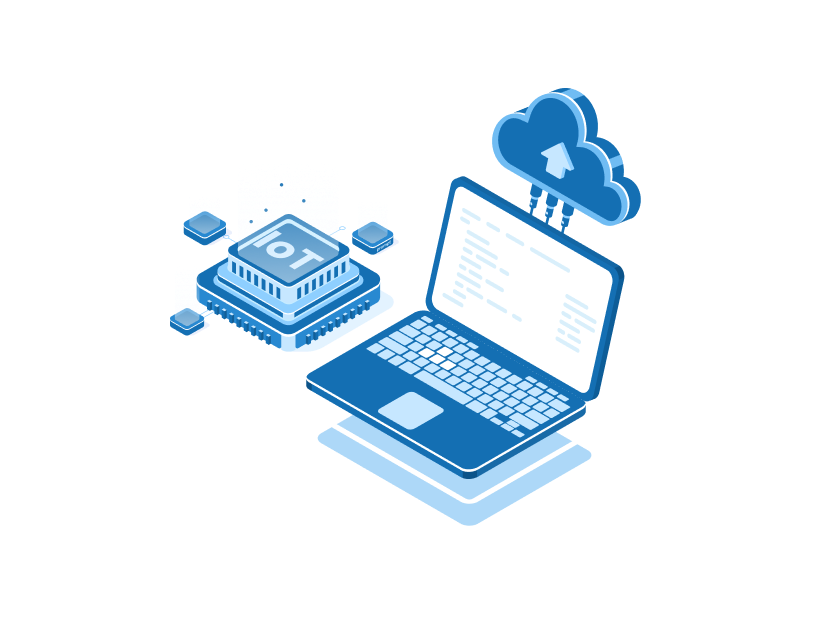Today, terms like smart refrigerator or smart town or home security system and many other words are familiar with everyone. Not just this, people even know that how these devices fit into the Internet of Things (IoT). Besides changing the lives of individuals, IoT has become a boon for businesses as it helps in making it more effective and efficient. Through automated sensors attached to packages or vehicles to inform the organization about the supply chain status, devices to monitor and track business development processes, or create more customer engagement, IoT provides every possible solution to help businesses grow and succeed.
Another business-outlook changing tool that is helpful for devices within the IoT is the cloud. It is an interconnected network of servers that store data for individuals and businesses alike. Individuals opt cloud for storing files on iCloud instead of saving on phone or computer, while companies use the cloud for business processes, mainly to store data from IoT systems.
Do you know the Difference Between a Private and Public Cloud?
Well, it’s not mandatory to have a cloud for IoT systems because the operations of IoT systems can even take place locally rather than on the cloud through a connection to the internet. Yet, using the cloud for IoT systems within your business might help in reducing costs and scale that often accompany cloud use.
Organizations can opt for either a private cloud, a public cloud, or a hybrid cloud for cloud use. It is necessary to know the pros and cons of all three cloud services. One of the most popular types of cloud service, especially for individual use, is the public cloud. In this, a third-party service provider owns this cloud but will not be responsible for any maintenance or infrastructure. Google Drive, Amazon Web Services, and iCloud are some examples of public clouds.
In a private cloud, the stored data and information are only available and can be accessed by the organization for which it was developed. This implies that Private Clouds offer more control over their data to the organization. Private clouds are the first preference of organizations like financial institutions or government institutions because they deal with sensitive information.
The third option is the hybrid cloud. These are a blend of private and public clouds. This combination empowers organizations to customize which cloud type to use for better results.
Benefits offered by Private Cloud for businesses:
There are many reasons for which a company may opt to work with a private cloud:
Protects Company Data:
Companies that have adopted IoT systems and devices experience immense data flow. This data helps churn valuable insights that can help the business to improve and grow. It is now apparent why organizations are concerned with data security. Private clouds have dedicated service providers that enable organizations to control data firmly. In this, the organization is responsible for installing and maintaining the cloud infrastructure so they can manage their valuable data in a better way.
Improves Productivity and Efficiency:
One of the main reasons for opting for private cloud over others is its features that promise efficiency and productivity in a business. An organization can prosper when they are concerned more about improving productivity among their employees.
Choosing a private cloud can improve a company’s efficiency by:
- Facilitating a business’s data usage and storage
- Enabling communication among co-workers more comfortable and faster
- Providing more flexibility and customization that allows systems to comply with special regulations or standards within the company or industry
- Offering employees better file-sharing capabilities

Additional Benefits:
There are several other benefits organizations may enjoy with private cloud usage, such as:
- The Expenditure. While it may seem as if a public cloud may be the more affordable option in many cases; however as per a report shared in 2019 concluded from 451 Research reveals that private cloud computing, mainly if it runs on a reliable single-tenant VMware are found to be less costly for some businesses.
- More Efficient Decision: A company is dependent on data and wishes to store data that can help in making significant business decisions on a more local level instead of sending data to a centralized location for processing purposes and proper analysis.
- Less Latency: On-premises management of systems and devices can promise faster data connectivity between servers and devices, lowering latency and permitting businesses to operate promptly.
- Proper Integration With Existing IoT Systems: An organization can easily integrate IoT systems with new systems more efficiently if they can physically access their data management system.
Conclusion:
In this fast-changing world, it has become mandatory to reevaluate the decisions made for the business benefit. Cloud computing is proliferating, so it has become obligatory to consider the future of cloud services for media, individuals, and businesses.
While considering cloud services for your business, be sure about the requirements of your business and opt for the most fitting cloud. Are you looking for cloud migration? Contact us to get the most reliable and result-focused services.

